Latest News
30 July 2018
Scientists to help Twitter gain insight into quality of online discussions

An interdisciplinary team of researchers from Leiden University, Syracuse University, Bocconi University and Delft University of Technology has obtained a grant from Twitter to research and develop tools to help identify behaviors that threaten the quality of the discussions on that social media platform. In the team, TU Delft researcher Nava Tintarev (Delft University of Technology) will assess the presence of echo chambers.
27 July 2018
ERC Starting Grants for seven TU Delft researchers

The European Research Council has awarded ERC Starting Grants to seven TU Delft researchers. The grants (1,5 million euros for a five-year programme) are intended to support scientists who are in the early stages of their career and have already produced excellent supervised work.
26 July 2018
Launch of TU Delft Student Rocket Fails
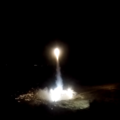
On Thursday 26 July at 03:30 AM, students from the Delft University of Technology, made an attempt with a home-built rocket (Stratos III) to beat the European altitude record and reach the threshold of space. Twenty seconds after the launch the rocket disintegrated above the safety zone at sea. The team and INTA (Instituto Nacional de Técnica Aeroespacial) are currently investigating the anomaly and the cause of the failed attempt.
23 July 2018
TU Delft students second in Hyperloop Pod Competition
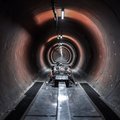
On Sunday 22 July, four student teams took on a challenge to race as fast as possible through a 1.2-kilometre Hyperloop test tunnel at SpaceX headquarters in Hawthorne, California. The team from Delft achieved a speed of 142 km/h, putting them in second place behind the WARR Hyperloop team from Munich University of Technology.
22 July 2018
Delft Hyperloop in final of the SpaceX Hyperloop Pod Competition
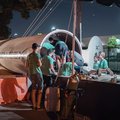
On Sunday 22 July, the Delft Hyperloop student team from TU Delft competes in the final of the Hyperloop Pod Competition at SpaceX headquarters in Hawthorne, California. During the final, four student teams take on the challenge of racing through a 1.2-kilometre test tunnel, built by SpaceX in 2016. The Hyperloop is a super-high-speed futuristic mode of transport, conceived by Elon Musk.
20 July 2018
Uncovering the interplay between two famous quantum effects
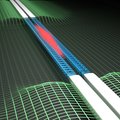
The Casimir force and superconductivity are two well-known quantum effects. Separately, these phenomena have been thoroughly studied.
16 July 2018
Seven Veni’s for TU Delft researchers

NWO has announced the Veni recipients for 2018. Amongst them are seven scientists from Delft University of Technology.
16 July 2018
TU Delft starts top research facility for energy system of the future
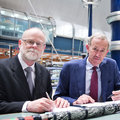
The integration of new technologies in the energy system is a vital aspect of the energy transition. As yet there are no facilities for testing new components in the high-voltage grid. TU Delft is changing this situation by building the ESP Lab (Electrical Sustainable Power Lab, Powered by TenneT). This lab will be a unique facility for top-class research into system integration in the energy system. This research is needed to be able to develop the energy system of the future.
10 July 2018
Environmental benefits of pay-per-wash business model revealed

Researchers from TU Delft and Lund University (Sweden) have demonstrated in practice that paying per wash results in the more economical use of washing machines. Their findings are being published in the Journal of Cleaner Production.
06 July 2018
Delft simulation model for optimum performance during team time trials
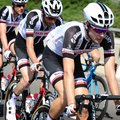
During his Mechanical Engineering degree programme, TU Delft student Mats Overtoom came up with a mathematical model that could provide answers to such questions as ‘What is the optimum changeover schedule for a cyclist in a team time trial?’ and ‘How fast does he need to cycle up a mountain to reach optimum performance?’. The input for the simulation model was data from cyclists from Team Sunweb and specific track information. It gives the Dumoulin team strategic tips for optimum performance, the best order of the cyclists and the length of turns on the front during a team time trial.
